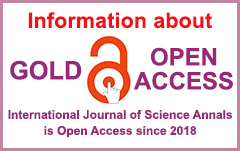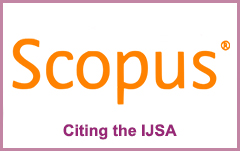Skrypynets S. M. 1
| 1 Uzhhorod National University, Ukraine |
Abstract
Background and Aim of Study: The full-scale war in Ukraine causes the population to experience numerous stressors that are layered on top of each other (forced displacement, losses, constant threats and existing traumas). This leads to emotional confusion (a state of reduced control of one’s own emotions), fatigue, narrowing of attention and impaired self-validation, which complicates self-understanding and self-care. All this poses numerous problems for the psychotherapist. They are due to the fact that standard psychotherapeutic programs may not be effective enough when clients are overwhelmed by the intensity of their problems. At the same time, assistance has to be provided within an extremely limited time frame. The aim of the study: to propose an integrated short-term intervention strategy for psychological counseling and psychotherapy to address emotional confusion in clients who have experienced multiple crises during wartime, utilizing the strengths of trauma-sensitive mindfulness, eye movement desensitization and reprocessing (EMDR), dialectical behavioral therapy (DBT), and self-compassion-based approaches.
Conclusions: The integrative approach allows therapists and clients to create a snapshot of current difficulties. It involves the sequential application of elements from different modalities: grounding techniques (EMDR/Mindfulness), internal state description (DBT), external stressor inventory, identification of key maladaptive beliefs (EMDR), and the use of stabilization or reprocessing techniques. This structured, brief intervention helps clients describe their condition, understand the sources of emotional confusion, practice self-compassion, and prioritize problems. Implemented over 1–2 sessions, this approach helps clients move beyond emotional confusion and motivates adaptive change, thereby instilling hope.
Keywords
emotional confusion, short-term intervention, dialectical behavioral therapy, eye movement desensitization and reprocessing, mindfulness, multiple stressors, war trauma
References
Brewin, C. R., Cloitre, M., Hyland, P., Shevlin, M., Maercker, A., Bryant, R. A., Humayun, A., Jones, L. M., Kagee, A., Rousseau, C., Somasundaram, D., Suzuki, Y., Wessely, S., van Ommeren, M., & Reed, G. M. (2017). A review of current evidence regarding the ICD-11 proposals for diagnosing PTSD and complex PTSD. Clinical Psychology Review, 58, 1–15. https://doi.org/10.1016/j.cpr.2017.09.001
Lieberman, M. D., Eisenberger, N. I., Crockett, M. J., Tom, S. M., Pfeifer, J. H., & Way, B. M. (2007). Putting feelings into words: affect labeling disrupts amygdala activity in response to affective stimuli. Psychological Science, 18(5), 421–428. https://doi.org/10.1111/j.1467-9280.2007.01916.x
Linehan, M. M. (2015). DBT skills training manual (2nd ed.). The Guilford Press. https://mindsplain.com/wp-content/uploads/2020/09/DBT_handouts.pdf
McEwen, B. S. (2017). Neurobiological and systemic effects of chronic stress. Chronic Stress, 1. https://doi.org/10.1177/2470547017692328
Melnyk, Yu. B., Stadnik, A. V., & Pypenko, I. S. (2020). Resistance to post-traumatic stress reactions of vulnerable groups engaged in pandemic liquidation. International Journal of Science Annals, 3(1), 35–44. https://doi.org/10.26697/ijsa.2020.1.5
Mykhaylyshyn, U. B., Stadnik, A. V., Melnyk, Yu. B., Vveinhardt, J., Oliveira, M. S., & Pypenko, I. S. (2024). Psychological stress among university students in wartime: A longitudinal study. International Journal of Science Annals, 7(1), 27–40. https://doi.org/10.26697/ijsa.2024.1.6
Neff, K. D. (2023). Self-compassion: Theory, method, research, and intervention. Annual Review of Psychology, 74, 193–218. https://doi.org/10.1146/annurev-psych-032420-031047
Shapiro, F. (2018). Eye movement desensitization and reprocessing (EMDR) therapy: Basic principles, protocols, and procedures (3rd ed.). The Guilford Press. https://www.emdr.com/product/home-study-book-course-book-test/
Snyder, C. R. (2002). Hope theory: Rainbows in the mind. Psychological Inquiry, 13(4), 249–275. https://doi.org/10.1207/S15327965PLI1304_01
Stadnik, A. V., Melnyk, Yu. B., Mykhaylyshyn, U. B., & de Matos, M. G. (2023). Peculiarities of the psychological well-being and social adaptation of young students and cadets in wartime conditions. International Journal of Science Annals, 6(1), 22–30. https://doi.org/10.26697/ijsa.2023.1.7
Treleaven, D. A. (2018). Trauma-sensitive mindfulness: Practices for safe and transformative healing. W. W. Norton & Company. https://davidtreleaven.com/
Skrypynets Serhii Mykhaylovych – https://orcid.org/0009-0005-4505-0524;
| |
APA
Skrypynets, S. M. (2025). Short-term interventions for overcoming emotional confusion: What to do when having many problems is yet another problem? International Journal of Science Annals, 8(1), 57–59. https://doi.org/10.26697/ijsa.2025.1.6
Harvard
Skrypynets, S. M. "Short-term interventions for overcoming emotional confusion: What to do when having many problems is yet another problem?" International Journal of Science Annals, [online] 8(1), pp. 57–59. viewed 30 June 2025, https://culturehealth.org/ijsa_archive/ijsa.2025.1.6.pdfVancouver
Skrypynets S. M. Short-term interventions for overcoming emotional confusion: What to do when having many problems is yet another problem? International Journal of Science Annals [Internet]. 2025 [cited 30 June 2025]; 8(1): 57–59. Available from: https://culturehealth.org/ijsa_archive/ijsa.2025.1.6.pdf https://doi.org/10.26697/ijsa.2025.1.6












